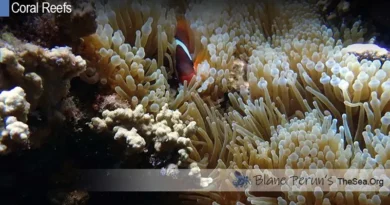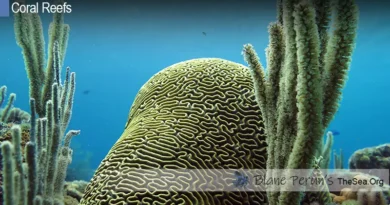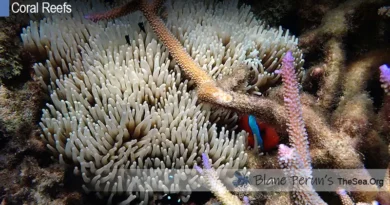What Do Coral Reefs Do
Table of Contents
Anyone who studied biology knows about the important role coral reef formations play in the promotion of biodiversity on our planet; but what do coral reefs do to support the global environment, and how does that tie in with its effects on humanity as a species and civilization? Coral reefs are a vital component that contributes to the health of the ocean and to that of Earth’s entire ecosystem. Offering protection and a diverse range of habitats that benefit many species of marine life, corals also prevent strong waves from crashing into the coastline and damaging the fragile mangroves and other ecosystems that grow there.
So what do coral reefs do to help the environment in the first place? Due to the fact that they form large structures that basically create a gradually growing wall protecting beaches and coastlines, they are able to reduce water flow into the area, attenuating the waves to ensure that coastlines aren’t damaged even during storms. They also filter out the carbon dioxide in the ocean, using a complex chemical reaction to separate the carbon and use it to construct their shells and calcium carbonate skeletons. Finally, corals provide protection for local marine creatures such as fish, sea turtles, lobsters, sea snakes and a host of other species of marine life. The coral reef food web is large enough to be essential to keeping many of the rest of the ocean’s species alive and to make a vital connection with coastal ecosystems as well.
Humanity has a lot to gain from thriving coral reefs. What do coral reefs do to make our live better and our jobs easier? First of all, the protection they offer and the rich biodiversity they support allows coastal communities to flourish. Responsible tourism can improve entire economies, and fishing practices can not only feed entire coastal cities, but also provide profitable export opportunities. Corals also contribute to keeping the ocean clean and clear of CO2, being able to prevent disease and an unbalanced coastal environment from taking hold and affecting our health and economy.
Many types of corals and the marine life they support are able to filter the water around them to eliminate sediments and organic particles that make ocean water murky. The result is clear water that also enhances sunlight exposure and allows for the formation of a greater sanctuary that can house many more species. Also, the diversity of coral reefs encourages symbiosis processes and attracts a larger variety of marine animals of every kind. So what coral reefs do best is supporting the continuing growth of some of the most fascinating, useful and unique animals that live in the ocean.
The Crucial Role of Coral Reefs in Our Ecosystem
Coral reefs, often described as the rainforests of the sea, play an integral role in our planet’s ecosystems. They are not just spectacular underwater landscapes; these complex structures, built over thousands of years by tiny coral polyps, are pivotal to the health of our oceans and to the planet as a whole.
The Biodiversity Haven of Coral Reefs
Unique Ecosystems Supporting Marine Life
Coral reefs are home to an astonishing variety of marine life. Scientists estimate that although they cover less than 1% of the ocean floor, they support about 25% of all marine species. This includes a plethora of fish, mollusks, crustaceans, and other sea creatures. The intricate structures of the reefs offer shelter, breeding grounds, and hunting territories for these species. This biodiversity is not just vital for the marine ecosystem but is also crucial for human livelihoods, especially for communities that rely heavily on fishing.
Coral Reefs and Climate Regulation
Natural Defenders Against Climate Change
Coral reefs also play a significant role in climate regulation. They act as natural barriers, protecting coastlines from the impact of waves and tropical storms, thus preventing coastal erosion and loss of land. Furthermore, they contribute to carbon and nitrogen fixing, which are essential processes in climate regulation. Sadly, the increasing temperature of ocean waters, a direct consequence of global warming, poses a severe threat to these ecosystems. Coral bleaching, a phenomenon where corals lose their vibrant colors due to stress, is becoming alarmingly common, leading to concerns about the long-term health of these ecosystems.
In conclusion, coral reefs do much more than add beauty to our oceans. They are vital for maintaining marine biodiversity, supporting fisheries and tourism industries, and playing a crucial role in protecting our coastlines and regulating the climate. Preserving these natural treasures is imperative not just for the health of our oceans, but for the well-being of our entire planet.
FAQs About Coral Reefs
- How do coral reefs benefit marine biodiversity?
Coral reefs provide habitat, food, and breeding grounds for numerous marine species. This rich biodiversity is crucial for maintaining ecological balance in the ocean and supporting fisheries which many human communities depend on. - Can coral reefs protect coastlines?
Yes, coral reefs act as natural barriers, absorbing the impact of waves and storms, which helps in reducing coastal erosion and protecting shoreline habitats and human settlements. - What is coral bleaching and why is it a concern?
Coral bleaching occurs when corals, stressed by factors like water temperature rise, expel the algae living in their tissues, causing them to turn white. This weakens the corals, affecting their ability to support marine life and making them more susceptible to disease. - How do coral reefs contribute to climate regulation?
Coral reefs assist in carbon and nitrogen fixing, processes vital for climate regulation. They also help in sequestering carbon dioxide, playing a role in mitigating the effects of climate change. - What can be done to protect coral reefs?
Protecting coral reefs involves reducing pollution, managing fisheries sustainably, minimizing physical damage to reefs, and addressing the broader issue of climate change by reducing greenhouse gas emissions.




